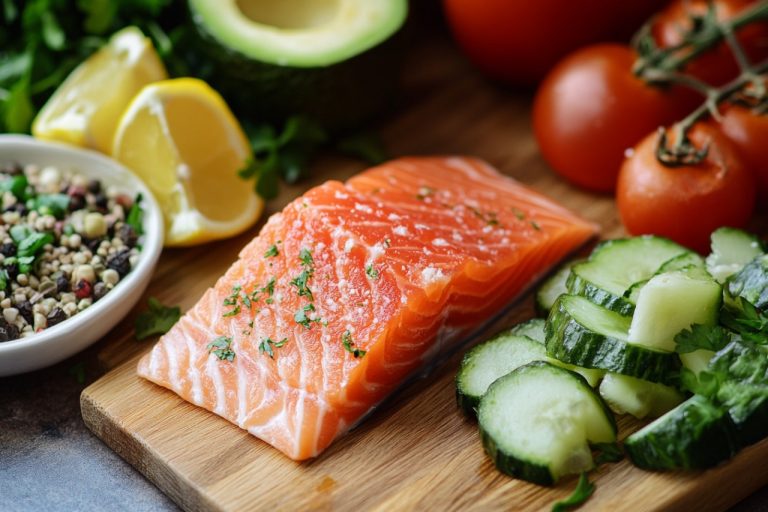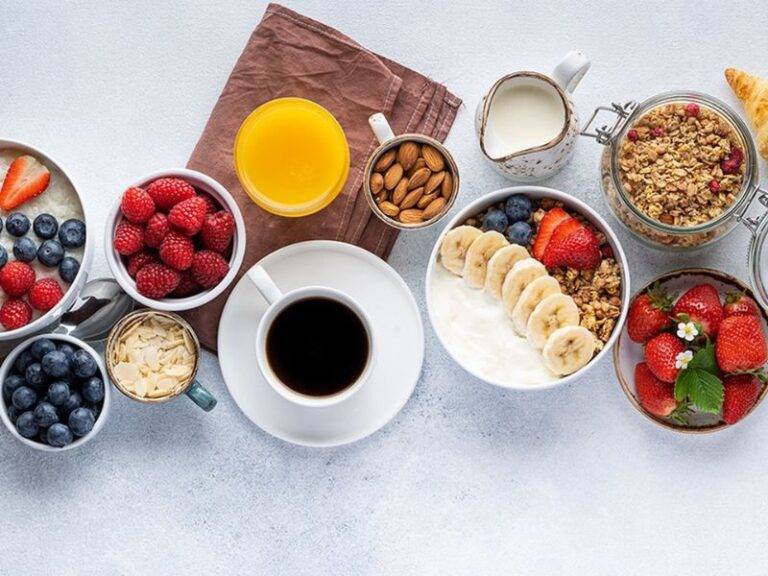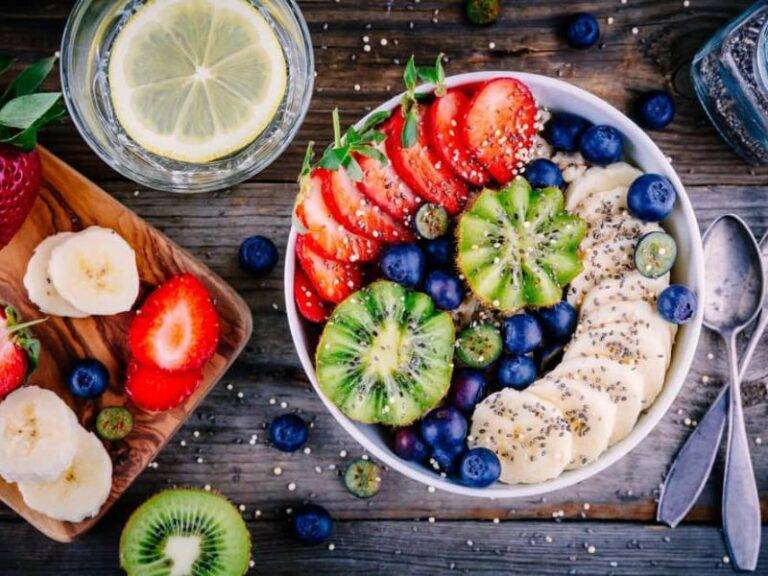With the first drops of rain on the roof, the monsoon brings a huge respite from the summer heat. The cool breeze, earthy smell, and lush greenery are a few things that make the monsoon fascinating in its own right.
But let us not forget that monsoon also brings the risk of infections. A season-smart diet will help keep you energized. In addition, it also protects you from seasonal illnesses. In this blog, we’ll guide you through a monsoon-friendly diet plan, expert tips, and food choices. These plans align with nature’s rhythms. All these plans and tips are backed by expert insight from Qua Nutrition, India’s leading nutrition clinic, providing personalized diet plans for health conditions like autoimmune diseases and lifestyle diseases.
Why Monsoon Diet Matters?
I am sure you might have come across this situation – you have felt bloated or quite sluggish soon after your usual meals in a rainy season. The high humidity during monsoons slows down digestion and metabolism. The digestive fire weakens, and thus your body begins facing imbalances.
The rainy season can also increase the risk of developing a few diseases.
- Waterborne illnesses like typhoid, cholera, and diarrhea
- Vector-borne diseases such as dengue and malaria
- Fungal infections and food spoilage
To prevent falling sick, it’s crucial to support your immune system and gut health with the right dietary choices.
Also Read: Dengue Patient Diet Plan
Key Principles of a Healthy Monsoon Diet
Before you can move ahead and check what you should eat during the rainy season, it is important to check out the key principles of a monsoon diet that you need to focus on.
Some key principles you should follow include
- Eat fresh light meals – Heavy foods can be very hard to digest in this season. Focus on light meals that aid in easy digestion. Also, avoid eating stale food.
- Avoid raw and street food – Raw food can be a breeding ground for bacteria. This is more so in the rainy season due to high humidity levels.
- Choose immunity boosters in your food – The ingredients like ginger, turmeric, and Tulsi can be your best bet to fight diseases.
- Drink boiled or filtered water – Stay hydrated at all times. But make sure that your water is clean.
- Use medicinal spices – Spices like turmeric, tulsi, black pepper, etc., can be an excellent option for fighting germs.
Foods to Include in Your Monsoon Diet
Qua Nutrition recommends using a strategic mix of seasonal produce, gut-friendly foods, and immune boosters can help you stay healthy.
- Seasonal fruits – We recommend fruits like pomegranates, apples, pears, and jamun. They are rich in antioxidants and support digestion. Water-rich fruits should be avoided. A few good examples are watermelons.
- Steamed vegetables – Raw salads can be a perfect welcome to infections. They may carry contaminants. Instead, use only steamed or sautéed vegetables. We recommend foods such as bottle gourd, ridge gourd, and bitter gourd. These are high in fiber, easy to digest, and naturally detoxifying.
- Herbal teas – Herbal teas made from tulsi, ginger, or lemongrass tea can be helpful in the season. These provide antimicrobial properties and help soothe the stomach while boosting immunity.
- Probiotics – Add probiotics like curd, buttermilk, or homemade lassi to your diet. They can help increase gut bacteria and improve gut health. They help cool the body and improve digestion.
- Pulses and legumes – Use easily digestible pulses like Moong or Masoor dal. In addition, they also provide proteins to your body. Avoid spicy lentil preparations as much as possible.
- Immunity boosting spices – Use the spices like Turmeric to fight inflammation, Asafoetida (hing) to reduce bloating, Black pepper to improve nutrient absorption, and Cumin and coriander to aid digestion.
Foods to Avoid in Monsoon
Well, having understood which foods you should focus on during the rainy season, it is equally important to check out a few foods that should be avoided invariably.
- Leafy greens – We do not recommend avoiding them altogether. But they can harbor bacteria and parasites in monsoons. You can wash them thoroughly.
- Raw street food and salads – They can be dangerous due to hygiene issues. These issues can be more prevalent during monsoons.
- Excessive dairy products – Milk and cream in high quantities can lead to the formation of phlegm.
- Seafood – Monsoons are the breeding season for many fish species. There may be a high risk of contamination during the season.
- Fried and oily foods – Pakoras are tempting during rainy seasons. But they put strain on your digestive system. It can also lead to issues like acidity.
Expert-Recommended Monsoon Diet Plan (Sample Day)
Well, here is a simple and practical option for the best monsoon diet plan. Curated by our nutrition experts at Qua Nutrition, these meal plans should keep you light, hydrated, and healthy.
Morning
Take warm water with a slice of lemon and a piece of ginger. Make sure to consume this on an empty stomach.
Breakfast
Steamed poha or Usma, along with cooked vegetables
Herbal tea made with tulsi or ginger
Mid-morning snacks
You can consider fruits like pomegranate, apple, or jamun. Ensure only a single serving.
Lunch
You can consider the following options –
- Steamed rice or millet
- Moong Dal or Masoor Dal
- Seasonal vegetables cooked lightly
- Curd – One bowl
Evening snack
Roasted chana, Idli or Khakra
Lemongrass tea
Dinner
Vegetable soup
Light Khichdi, preferably with turmeric and cumin
Warm turmeric milk
Note – This is a sample diet plan, and you can alter it to suit your specific needs. We recommend getting a customized diet plan from a dietitian and nutritionist according to your body preference.
Monsoon Diet Tips by Experts
Simply following a diet plan during the monsoon season may not be sufficient. There are a few other essential tips that you may need to follow to keep yourself in good health.
- Wash every piece of produce carefully – Monsoons are the prime season for contamination and infections. Avoid using any produce raw. Wash them thoroughly
- Avoid outside food – You are not aware of what is going on in the outside food. Home-cooked food will help you avoid any sort of contamination.
- Stay hydrated – Drink warm water. You can also consider the water infused with mint and fennel.
- Never eat reheated food – The leftover food can easily harbor bacteria and other contaminants. Avoid them as much as possible.
- Sleep and destress – Poor sleep can disturb your mental health. It can also affect your immune system severely. Aim for a sleep of at least 7 to 8 hours.
This Monsoon: Eat Clean, Stay Safe
Monsoons are known to be unpredictable. However, your health need not be. Make a few changes in your diet. It will help you avoid most of the monsoon-related illnesses. Following the right diet plans can help you stay energized and infection-free throughout the season.
At Qua Nutrition, we understand that no two bodies are the same. You may be a working professional, an athlete, a child, or managing a health condition. So, your monsoon diet must match your personal health goals and lifestyle. Our team of expert nutritionists and clinical dietitians specializes in healthy diet plans for practically every need that you may have.
Build your meals around seasonal wisdom and expert insights. Nature already gives us what we need—your role is just to listen and align.
Stay safe. Stay nourished. And let this monsoon be your healthiest yet—with Qua Nutrition by your side.









